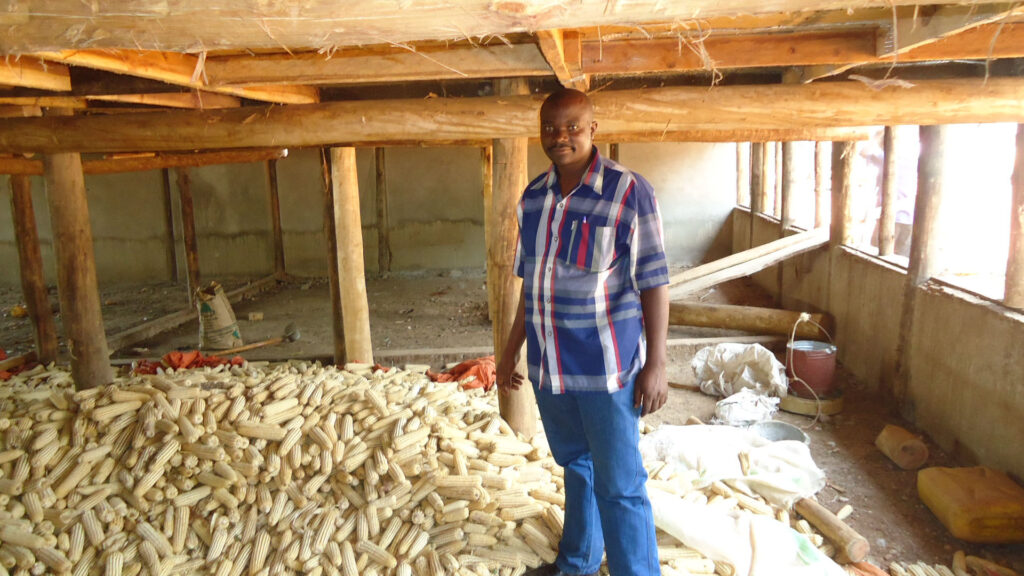By Victoria Nampala Bugembe
Maize, also known as corn, is one of the world’s most important crops, serving as a staple food for many cultures and a crucial ingredient in various industrial products.
After the arduous task of cultivation and harvesting, the care taken during the post-harvest period is paramount to ensure the quality and longevity of this precious crop. Effective post-harvest management not only preserves the nutritional value of maize but also contributes to food security and economic stability.

Drying
Immediately after harvest, maize must undergo proper drying to reduce moisture content as excess moisture leads to Mold growth, insect infestations, and a decrease in overall quality.
Irene Nakijoba, a maize farmer at Kisoga says that, by tradition, maize is dried under the sun on a Tuplin surface and methods involve sun drying on clean surfaces, while modern approaches include mechanical dryers.
Proper Storage.
Maize is one of the most vulnerable seedlings to pests such as insects, rodents, and aflatoxins. Nancy Mugimba, the National Coordinator at Eastern and Southern Africa Small Scale Farmers’ Forum Uganda (ESAFF) advice that, to gain money out of maize, there is a need to invest in good storage facilities like traditional granaries, and airtight containers to prevent post-harvest losses. These deprive the insects of oxygen which helps them to thrive.
Sorting the Good from the Bad
To have better quality and reduce the risks of contamination, Maize must be cleaned and removed from all the foreign materials it is stored.
Maize is supposed to be sorted accordingly in the form of size, weight, and quality.
Fumigation and Pest Management:
Mugimba guides that, to ensure proper food safety and environmental protection of maize from insects, rodents, and aflatoxins, there is a need to fumigate the place where maize is stored. A farmer can also use traps and biological control agents.
Packaging
To preserve maize in safe packaging, it is supposed to be kept in woven polypropylene since it allows proper ventilation and keeps out moisture. The package maize must be kept off the ground to prevent dampness from penetrating the maize.
Monitoring and Quality Control
To prevent signs of spoilage, infestations, or temperature fluctuations, the farmer or storekeeper of maize has to do regular monitoring using both visual and moisture meters, and thermometers.
Value Addition
maize can be processed into various value-added products such as flour, corn, popcorn, and corn oil. By spreading their product contributions, farmers can maximize their profits and reduce the risk of market fluctuations.
“ I get flour for food, maize brand for animal feeds, and sell the rest to the market every year,” says Nakijoba





